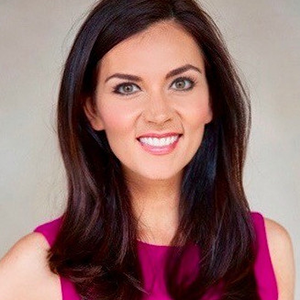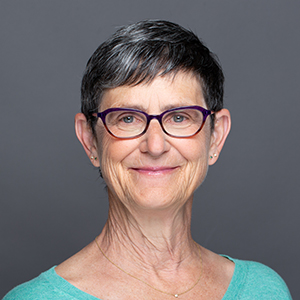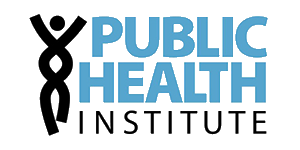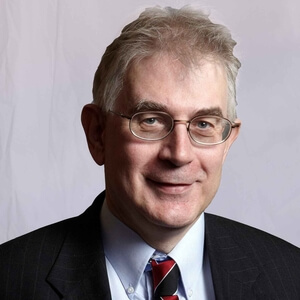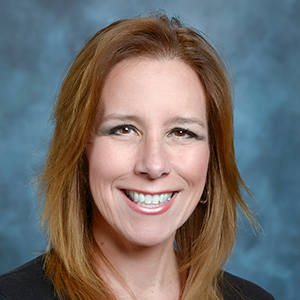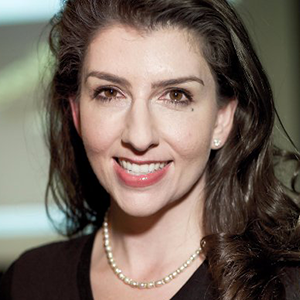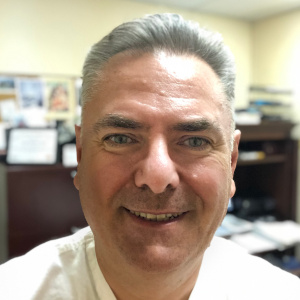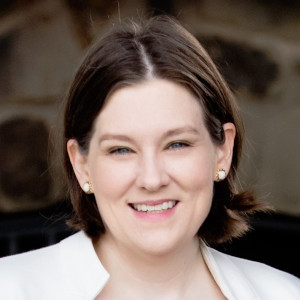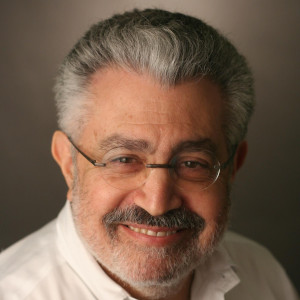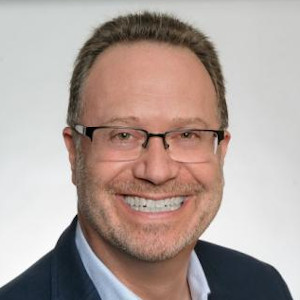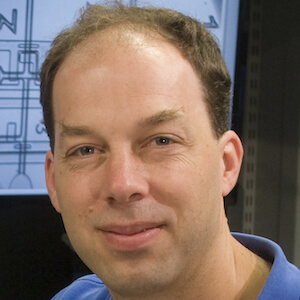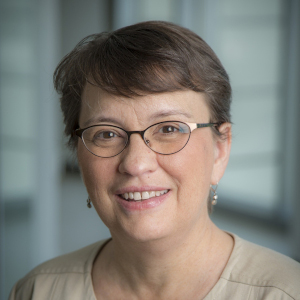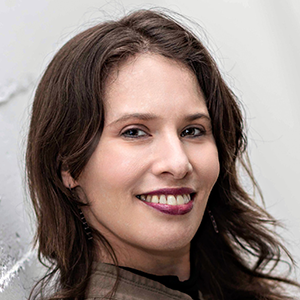Session Abstract – PMWC 2020 Silicon Valley
Researchers have long been recognizing the uniqueness of women’s health and the substantial effect on clinical practice, acknowledging the increasing appreciation of the importance of multidisciplinary approaches to health and disease. In every organ system, there are diseases that are unique to women, more common in women than in men, or characterized by differences in disease course in women compared with men. This session will include the effect of women’s health on the following topics:
- Reproductive Women's Health Overview
- Michelle Strecker, Invitae - Preterm Birth & The Promise Of Biomarkers
New “omics” assays that measure multiple biomarkers shed light on processes that lead to increased risk of preterm birth and generate biomarkers of risk of preterm birth that are useful for prediction. Those two applications (mechanism identification and prediction) could be useful for developing therapeutic targets, diagnostic tests, as well as identifying populations at particularly high risk in whom interventions might be most important.
- Amy Murtha, UCSF
- Laura Jelliffe-Pawlowski, UCSF
- Stephen Quake, Stanford - Preterm Birth and Oral Health
- Michael Reddy, UCSF - NIPT
Current non-invasive prenatal screening is targeted toward the detection of chromosomal abnormalities in the fetus, providing much higher test sensitivity and specificity than traditional maternal serum screening for trisomy 21, 18 and 13. New approaches for non-invasive prenatal sequencing are being developed to detect causative genes for frequent dominant monogentic diseases that can lead to significant adverse health outcomes. This will help guide physician and parent decisions for further evaluation and management of the pregnancy.
- Brynn Levy, Columbia University - The Evolution Of Genetic Carrier Screening
Before definitive identification of causative genes and associated mutations, carrier screening relied on biochemical techniques, utilizing measurements of enzyme activity and/or substrate levels. As genes and mutations were identified, molecular-based screening became the standard. Advances in molecular technologies, especially next-generation sequencing (NGS), have changed the landscape of carrier screening – providing information about multiple genes, the whole exome, or even the whole genome. The panel will discuss the conditions and genes most appropriate for screening, and whether it is time to screen the whole genome.
- Jennifer Saucier, Natera - Infertility Outcomes: Genetics And Epigenetics
This talk will cover the impact of genetics and epigenetics of infertility diagnosis associated with epigenetics of various treatments on overall pregnancy outcomes. Studies are starting to suggest that genetics and epigenetics of infertility diagnoses affect outcomes for mother and child, which may be a greater contributor than treatments utilized.
- Margareta D. Pisarska, Cedars-Sinai Medical Center - AI in IVF: Selection Of Optimal Embryo
AI is not meant to replace the doctors and embryologists but rather to be used as a tool to medical practitioners in augmenting correct diagnoses and increase the robustness of the treatments and increase pregnancy and LB rates.
- Nikica Zaninovic, Weill Cornell Medical College - Expanded Carrier Screening For Serious Inherited Disorders
Carrier screening has been a routine part of prenatal care for over 50 years. Traditionally, screening has been limited to a small number of conditions in selected ethnic groups. This talk will describe advances in technology that now make possible pan-ethnic screening for a large number of serious conditions.
- James Goldberg, Myriad - Precision Medicine Leads to Better Fertility Outcomes
- Aimee Eyvazzadeh, Egg Whisperer - Endometriosis
This common, estrogen-dependent, inflammatory disease that is associated with a high prevalence of pelvic pain and reduced fertility in women remains challenging for clinicians, researchers, and those affected. A considerable heritable component to endometriosis risk has been established through both family- and population-based studies. New minimally invasive diagnostic methods are being developed to enable early intervention that might reduce suffering and expenses related to the disease.
- Heather Bowerman, Dotlab - Preimplantation Genetic Testing Beyond Recessive Disease
- Alex Bisignano, Phosphorus - In Vitro Fertilization
Despite continual advances in techniques and technology since the introduction of in vitro fertilization more than 40 years ago, this approach is successful in fewer than half of initiated cycles. Major advancements have been made in methods to improve oocyte quality in older women, new stimulation protocols that may improve the number of mature oocytes retrieved during in vitro fertilization cycle, pre-implantation genetic screening, and endometrial receptivity evaluation.
- Akash Kumar, MyOme Inc.
- Claire Tomkins, Future Family - Menopause and Early Predictors
Current osteoporosis medications reduce fractures significantly but have rare and serious adverse effects that may limit their safety for long-term use. Insights from basic bone biology and genetic disorders have led to recent advances in therapeutics for osteoporosis. Combination and sequential treatments using osteoporosis medications with different mechanisms of action have also been tested with promising results. On the horizon is the potential for cell-based therapies and drugs that target the elimination of senescent cells in the bone microenvironment.
- Marcelle Cedars, UCSF - Breast Cancer Genetics: Molecular Tumor Signatures and Hereditary Cancer Tests
Advances in molecular pathology and hereditary cancer assays have led to a new understanding of breast cancer classification systems, allowing for precision thera-py using molecular tumor signatures that guide both systemic treatments and per-sonalized radiotherapy. The goal is to minimize overtreatment and treatment-associated morbidity for patients while preventing progression and recurrence. This session will focus on the current state of progress in these pursuits and discuss the challenges including prior authorization issues and the growing size of assay pan-els.
- Ramesh Hariharan, Natera
- Eleanor Harris, Case Western
- George Sledge, Stanford
- Barbara Cohn, Public Health Institute
Session Chair Profile
Biography
Dr. Aleksandar Rajkovic serves as the UCSF Chief Genomics Officer and is the Medical Director and Chief of the Center for Genetic and Genomic Medicine (CGGM) that organizes, coordinates and oversees Clinical Genetics and Genomics Services across the entire UCSF Health System. He also serves as the Director of the Genomic Medicine Initiative. He is also Stuart Lindsay Distinguished Professor in Experimental Pathology I, member of the American Society of Clinical Investigation and American Association of Physicians. His research interests lie in basic and translational medical sciences in the area of reproductive genetics. Dr. Rajkovic discovered numerous genes that play critical roles in reproductive tract development, male and female infertility, and uterine tumors. He has been at the forefront of applying cutting edge genomic technologies to reproductive diagnostics, including prenatal diagnosis, preimplantation genetic screening, and perinatal genomics. He has made significant contributions to non-invasive diagnosis of submicroscopic deletions, design and utility of dense X chromosome arrays, and utility of genome wide detection of copy number variants in prenatal diagnosis. His current interests lie in whole genome applications towards population based health prediction and prevention, as well as prevention of Mendialian disorders.
Session Chair Profile
Biography
Dr. Ramesh Hariharan’s career of 18 years spans a range of subspecialties, including basic research, strategic management consulting, and marketing. At GE’s Basic Research Center, he was nominated as the Best Young Scientist for his innovations, which included the discovery of a new molecule that was commercialized to enable higher data densities in rewritable DVDs, and a novel process for agglomerating nanoparticles. At McKinsey, he served biotech, pharma, medical device, diagnostics, and private equity leaders in the U.S., Germany, and the U.K., tackling a wide range of business issues such as product launches, market expansion, life cycle strategies, and business turnarounds. Dr. Hariharan then held marketing leadership positions in Oncology, Women’s Health, and Vaccines at Novartis, Abbott/AbbVie and Biotheranostics. Most recently at Biotheranostics, he drove the successful commercial turnaround and relaunch of Breast Cancer Index and CancerTYPE ID including repositioning, branding, messaging, and targeted promotions to medical oncologists and patients. He received a bachelor’s degree in chemical engineering from IIT Bombay, a Ph.D. in chemical engineering from Princeton University, and an M.B.A. from MIT Sloan School of Management.
Speaker Profile
Biography
For her work as a bioengineer and entrepreneur, Bowerman has been recognized as a Top 35 Global Innovator by the MIT Technology Review, one of the 100 Most Intriguing Entrepreneurs by Goldman Sachs, and a World Technology Award Finalist for Health & Medicine. Reader’s Digest named DotLab as an Amazing Medical Breakthrough of 2018. Bowerman was previously a biotechnology investor, a management consultant at McKinsey & Company, and a policy associate in the Office of Science & Technology Policy in the Obama White House. She is a graduate of UC Berkeley and Harvard.
Talk
Diagnosis Of Endometriosis: Non-Invasive Technology
Today, laparoscopic surgery under general anesthesia is the clinical standard for the diagnosis of endometriosis, and modalities such as medical imaging do not offer diagnostic capabilities for endometriosis. Women who do eventually receive a diagnosis endure an average delay to diagnosis of ten years and change doctors a median of five times in the process. Improvements in non-invasive diagnostic technology holds promise to improve the clinical standard.
Speaker Profile
Biography
Dr. Cohn’s directs research on breast cancer in the Child Health and Development Studies (CHDS) where she employs a unique biospecimen archive to investigate the role of environmental chemical exposures in pregnancy on the health of the mother, her daughter and granddaughters. She also directs a research program in grandparental effects on the risk of autism and cardiometabolic risk in CHDS granddaughters and grandsons. She collaborates with researchers at other institutions and oversees new CHDS data collections, currently in studies of in utero predictors of neurodevelopmental disorders including autism, psychological symptoms and functioning and young onset colon cancer. She participates in transdisciplinary collaborations notably toxicology, environmental chemistry, metabolomics, health disparities). Dr. Cohn has an undergraduate degree in Zoology, Masters Degrees in City and Regional Planning and Public Health Planning and a PhD in Epidemiology all from UC Berkeley. She is the mother of three and grandmother of two.
Talk
Muti-And Trans-Generational Environmental Transmission Of Breast Cancer
We address multi-generational and trans-generational impact of environmental chemicals on breast cancer, highlighting high-resolution metabolomics in our archived pregnancy bio-specimens and three generation follow-up. We employ novel computational approaches and integrative analysis to reveal prenatal molecular footprints of gene-environment interactions and discuss implications for breast cancer prevention, detection and treatment.
Speaker Profile
Biography
Dr. George W. Sledge, Jr., M.D. is Professor and Chief of Medical Oncology at Stanford University Medical Center. Dr. Sledge served as a Ballve-Lantero Professor of Oncology of Medicine and Pathology of Indiana University School of Medicine. He served as Co-Director of the breast cancer program at the Indiana University Cancer Center, where he was a Professor of Medicine and Pathology at the Indiana University Simon Cancer Center. Dr. Sledge specializes in the study and treatment of breast cancer and directed the first large, nationwide study on the use of paclitaxel to treat advanced breast cancer. His recent research focuses on novel biologic treatments for breast cancer. He served as a Professor of Indiana University Cancer Center Breast Cancer Program. He has also served as the chair of ASCO’s Education Committee, as a member of the Department of Defense Breast Cancer Research Program’s Integration Panel, as a member of the Food and Drug Administration’s Oncology Drug Advisory Committee (ODAC), and as a member of the External Advisory Committee for The Cancer Genome Atlas (TCGA) project. Dr. Sledge was awarded the Hope Funds for Cancer Research 2013 Award of ‘Excellence for Medicine’. He holds a B.A. from the University of Wisconsin and an M.D. from Tulane University.
Speaker Profile
Biography
Dr. Harris has a long standing research interest in personalizing cancer therapy to improve outcomes and quality of life with fewer side effects from treatment. She is currently collaborating on an innovative, paradigm-changing approach to personalizing radiotherapy dose using a novel gene assay of radiosensitivity in solid tumors called RSI-GARD. Dr. Harris is active in clinical research as a senior member of the Breast and Gynecologic research committees of the NRG cooperative group, and of the scientific program committee for the American Society for Clinical Oncology, and as an independent investigator and mentor for junior faculty and students. She has an interest in promoting quality standards of cancer care, through her work as chair of the Emerging Technology Committee and member of the Guidelines Committee for the American Society for Radiation Oncology, as well as the chair of the American Radium Society Appropriate Use Criteria Panel for breast cancer.
Talk
Precision Medicine for Breast Cancer: Personalizing Radiotherapy
For decades breast radiotherapy dosed “one size fits all” regimens, leading to over and under-treatment. A precision medicine approach assays each woman’s breast cancer to determine its radiosensitivity to apply the precise dose of radiation needed to provide tumor control, and to select those who will not benefit from therapy.
Speaker Profile
Biography
Dr. Marcelle Cedars is a specialist in caring for patients going through in vitro fertilization and perimenopause, as well as patients with polycystic ovarian syndrome. She is director of the UCSF Center for Reproductive Health. Cedars also directs UCSF’s reproductive endocrinology division, coordinating the relationship between scientific research and personalized care for patients. In her own research, she focuses on ovarian aging and how it affects both fertility and women’s overall health. Cedars received her medical training at the University of Texas Southwestern Medical School. She completed a residency in obstetrics and gynecology at Parkland Health & Hospital System, followed by a fellowship in reproductive endocrinology at the University of California, Los Angeles.
Talk
Ovarian Aging, Menopause and Early Predictors
This talk will cover investigations into the impact of ovarian aging on reproductive and general health. Women are unique in the universal loss of reproductive function at an age long before other vital systems fail. Studies are starting to understand the causes for this loss and the lifelong impact for both reproductive function but also women’s health.
Speaker Profile
Biography
Dr. Pisarska earned her bachelor’s degree at State University of New York (SUNY) at Stony Brook and her medical degree at Upstate Medical Center in New York. She completed residency in Obstetrics and Gynecology at Lenox Hill Hospital in New York City and a fellowship in Reproductive Endocrinology and Infertility at Baylor College of Medicine in Houston. Dr. Pisarska was at Stanford University as a National Institutes of Health (NIH)-sponsored Women’s Reproductive Health Research Career Center Scholar before joining the faculty at Cedars-Sinai Medical Center. She has a comprehensive research program looking at adverse pregnancy outcomes associated with how the pregnancy/placenta implants, using specific genetics approaches to better understand how genetics and environmental influences, including fertility treatments, as well as fetal sex affect mother and infant, which can have long term health implications. Another area of her research focuses on oocyte development, ovarian function and dysfunction including ovarian failure and polycystic ovary syndrome.
Talk
Infertility Outcomes: Genetics And Epigenetics
This talk will cover the impact of genetics and epigenetics of infertility diagnosis associated with epigenetics of various treatments on overall pregnancy outcomes. Studies are starting to suggest that genetics and epigenetics of infertility diagnoses affect outcomes for mother and child, which may be a greater contributor than treatments utilized.
Speaker Profile
Biography
Infertility is a global public health issue. It’s something Dr. Aimee Eyvazzadeh of the San Francisco Bay area has seen thousands of patients struggle with. Yet, she believes there is hope. Preventative, proactive, and personalized fertility medicine is not only what she preaches as part of her weekly Egg Whisperer Show, but it’s also what she practices with the hundreds of hopeful parents she partners with each year. As part of a mission to make people more fertility aware, her care extends well beyond her office in San Ramon, CA to people all over the world. She educates on fertility preservation options through Egg Freezing Parties, her live-streaming weekly Egg Whisper Show, and helps women understand their fertility levels through Egg Awareness panels. Dr. Aimee also teaches her trademarked, TUSHY Method, for inspiring patients to understand the full picture of their fertility health before undergoing fertility treatment. Tubes, Uterine Ultrasound, Semen analysis, Hormone testing and understanding Your genetic profile all help to paint a holistic fertility picture for proper diagnosis and treatment.
Talk
Precision Medicine Leads to Better Fertility Outcomes
The latest technology clinically available gives patients access to highly personalized fertility care. More than ever patients are taking an active role in their care thanks to increased access to testing. This new-found knowledge is power, saves time, and can profoundly impact fertility treatment success rates.
Speaker Profile
Biography
Dr. Zaninovic’s interests include clinical and experimental embryology as well as stem cell biology. His research is currently focused on the development of new embryo selection protocols using time-lapse microscopy of developing embryos and application of Artificial Intelligence in the field of Embryology and IVF. In addition to his clinical duties, Dr. Zaninovic has ongoing research projects in human embryonic stem cell (hESCs) derivation. As Manager and Principal Investigator of Weill Cornell’s hESC Derivation Laboratory, Dr. Zaninovic has derived 43 stem cell lines.
Talk
AI in IVF: Selection Of Optimal Embryo
AI is not meant to replace the doctors and embryologists but rather to be used as a tool to medical practitioners in augmenting correct diagnoses and increase the robustness of the treatments and increase pregnancy and LB rates.
Speaker Profile
Biography
Jennifer Saucier is a board-certified genetic counselor with expertise in expanded carrier screening, non-invasive prenatal screening and preimplantation genetic testing. She currently serves as the Director of Genetic Counseling Services at Natera where she provides guidance on product development and oversees a team of laboratory genetic counselors. Prior to joining Natera, Ms. Saucier gained invaluable experience in all areas of genetic testing (prenatal, pediatrics, cancer and laboratory) working as the sole genetic counselor at a large rural university hospital and cytogenetics lab. She later joined Genzyme Genetics and specialized in reproductive genetics while counseling patients at several busy maternal fetal medicine offices.
Talk
The Evolution Of Genetic Carrier Screening
Before definitive identification of causative genes and associated mutations, carrier screening relied on biochemical techniques, utilizing measurements of enzyme activity and/or substrate levels. As genes and mutations were identified, molecular-based screening became the standard. Advances in molecular technologies, especially next-generation sequencing (NGS), have changed the landscape of carrier screening – providing information about multiple genes, the whole exome, or even the whole genome. The panel will discuss the conditions and genes most appropriate for screening, and whether it is time to screen the whole genome.
Speaker Profile
Biography
Dr. Goldberg is board certified in obstetrics and gynecology, maternal-fetal medicine, and medical genetics, and is a founding fellow of the American College of Medical Genetics. He was previously the director of the Reproductive Genetics Unit at the University of California, San Francisco and subsequently co-director of the Prenatal Diagnosis Center at California Pacific Medical Center and partner at San Francisco Perinatal Associates. He has also served as president of the Perinatal Quality Foundation and on the board of the Society for Maternal Fetal Medicine. Dr. Goldberg has published extensively in the area of prenatal diagnosis and screening and has served on committees that establish national obstetrical care policy.
Talk
Expanded Carrier Screening For Serious Inherited Disorders
Carrier screening has been a routine part of prenatal care for over 50 years. Traditionally, screening has been limited to a small number of conditions in selected ethnic groups. This talk will describe advances in technology that now make possible pan-ethnic screening for a large number of serious conditions.
Speaker Profile
Biography
Dr. Kumar is a medical genetics resident at Stanford and is co-founder of MyOme where he oversees medical and scientific direction. Prior to MyOme, Akash trained in science and medicine at the University of Washington under his thesis advisor Jay Shendure. His scientific contributions include design and implementation of NGS-based methods with applications in cancer genetics and prenatal testing. He has published seven first-author publications in journals including Nature Medicine, PNAS and Genome Medicine and is a co-inventor on one licensed patent. As a medical geneticist, Akash believes that early diagnosis/intervention are essential to improve outcomes for children and families affected with disease.
Talk
Measuring Genomic Risk In Parents And Embryos
Recent advances in sequencing technology and “polygenic risk scores” offer the potential to expand the scope of genetic testing to conditions that are increasingly relevant to the health of individuals and their growing families. Advantages, challenges and controversies will be discussed.
Speaker Profile
Biography
In addition to his current role, Brynn Levy is the Medical Director of the Clinical Cytogenetics Laboratory of the New York Presbyterian Hospital and a Co-Director of the Division of Personalized Genomic in the Department of Pathology & Cell Biology. Dr. Levy is regarded internationally as an expert in the clinical utility of genomic technologies in reproductive medicine. He has authored multiple book chapters and publications on molecular genetics, clinical cytogenetics and molecular cytogenetics and lectured internationally about his experience utilizing CGH and high resolution SNP microarrays both as a clinical and research tool. His research areas of interest include early prenatal screening using fetal cells and cell-free fetal DNA from maternal circulation, PGD and the etiology of recurrent miscarriage. Dr. Levy was a Co-Investigator of the Multicenter NICHD study that investigated the use of microarrays for prenatal diagnosis and was the Columbia University site Principal Investigator of a NIH-funded study from the Stillbirth Collaborative Research Network (SCRN) that assessed CNVs in stillbirths. Dr. Levy is the past President of the Cancer Genomics Consortium (GCC) and was the PI at Columbia University Medical Center for the GCG Multi-center Quality Control trial that performed cross-platform validation of cytogenomic arrays for cancer diagnostics. Dr. Levy currently serves as the Genetics and Genomics Section Editor for the journal Prenatal Diagnosis.
Talk
The Various Flavors of Non-Invasive Prenatal Testing
When first introduced, NIPT focused on screening for T21 and soon thereafter for T13, T18, and sex chromosome aneuploidies. NIPT has now expanded to assessment of the whole genome, various microdeletions and even aneuploidy in embryos. This talk will cover the various NIPT offerings and highlight their benefits and limitations.
Speaker Profile
Biography
Steve Quake has pioneered innovative approaches to biological measurement, including the invention of microfluidic large-scale integration, the biological equivalent of the integrated circuit, which has enabled large-scale automation of biology. He has developed applications of microfluidics in areas as diverse as structural biology, drug discovery, and molecular affinity measurements. Equally innovative in the field of genomics, Quake generated the first single-molecule human genome sequence, developed techniques to perform single cell gene expression and genome sequencing, non-invasive prenatal diagnostics, prenatal genome sequencing, non-invasive tests for heart transplant rejection, and approaches to sequence the immune system. He was also one of the first people in the world to see their own genome. Quake joined the faculty of the California Institute of Technology at age 26 and returned to Stanford University in 2005 to help launch the department of Bioengineering after having earned his B.S. in Physics and M.S. in Mathematics there in 1991. He has founded or co-founded 7 companies including Fluidigm, Helicos Biosciences, Verinata Health, and Immumetrix. Quake is an Investigator of the Howard Hughes Medical Institute, has been elected to the National Academy of Sciences, the National Academy of Engineering, the Institute of Medicine, among other institutions and is the recipient of numerous awards including the NIH Director’s Pioneer Award. He earned his D.Phil. in Physics from Oxford University in 1994 as a Marshall Scholar and conducted postdoctoral work at Stanford in single molecules biophysics.
Speaker Profile
Biography
Dr. Laura Jelliffe-Pawlowski, PhD, is an Associate Professor of Epidemiology & Biostatistics in the UCSF School of Medicine and is the Director of Precision Health and Discovery with the UCSF California Preterm Birth Initiative. Dr. Jelliffe-Pawlowski and her team work to identify new tools, tests and technologies that can help identify pregnant women and babies at increased risk for preterm birth, complications of prematurity, and associated birth defects and developmental delays. She has a particular focus and interest in work that leverages molecular markers to help predict outcomes and identify in-roads for intervention and has developed tests to predict preterm birth, metabolically date babies at birth, and tests to predict survival and severe complications in vulnerable babies. She leads cohort studies in the United States and Africa that focus on vulnerable populations of color with the aim of uncovering and addressing cell-to-society drivers of pregnancy and newborn complications.
Speaker Profile
Biography
Dr. Amy Murtha specializes in maternal-fetal medicine, focused on managing the health concerns of mothers and fetuses before, during and shortly following pregnancy. She has a special interest in caring for women who have high-risk pregnancies, including preterm birth. Her research focus has been on understanding mechanisms that result in preterm premature rupture of membranes. After earning her degree from the Medical College of Pennsylvania, now Drexel University College of Medicine, she completed a residency in obstetrics and gynecology at Duke University Medical Center, where she also completed a fellowship in maternal-fetal medicine. Honored with numerous awards following medical school, she went on to receive awards recognizing her research accomplishments and publications while at Duke. As the chair of Ob, Gyn & Reproductive Sciences at UCSF, she is committed to excellence in clinical care, education, research, advocacy and equity.
Talk
Preterm Birth: Shifting The Paradigm
This talk will provide an overview of our traditional approaches to discovery in preterm birth research and address shortfalls and opportunities to challenge our traditional approaches to understanding the etiology preterm birth both from a molecular level to a societal level.
Speaker Profile
Biography
Michelle is a licensed, board-certified genetic counselor at Invitae with over 20 years of experience in reproductive health and clinical genetics. Michelle has worked in a variety of settings spanning both academic medicine and commercial genetics laboratories, including the University of Texas-Houston Medical School, the University of California, San Francisco, LabCorp, and CombiMatrix. Michelle is passionate about empowering patients and healthcare providers to better understand complex genetic and medical information as a way of personalizing medical care and bringing genetics into mainstream medicine. Michelle is an active member of the National Society of Genetic Counselors, the American College of Medical Genetics, and the American Society of Reproductive Medicine, and serves on the editorial board of Lab Tests Online. Michelle holds a Master of Science degree in genetic counseling from the University of Texas Graduate School of Biomedical Sciences and a Bachelor of Science in cellular and molecular biology from the University of Washington.
Speaker Profile
Biography
Claire Tomkins is focused on making IVF and egg freezing affordable for people across the US. She is passionate about women's health and fertility based on her personal journey. Before her current role, Claire was Director of Product Marketing at SolarCity (now Tesla) and has additional experience as part of the founding team of two global non-profits. Claire has been recognized as a National Science Foundation Fellow and a Kauffman Fellow. Her work combining advances in fintech, digital care, and fertility care has earned her the following recognition: Hustle 2X’s Woman of The Year Top-50 finalist, Inc Magazine’s list of Top 100 Female Founders, Fortune’s Most Powerful Women Next Gen, and one of San Francisco Business Time’s 40 Under 40. Claire has three children, all born via IVF, and lives in San Francisco.
Speaker Profile
Biography
Michael Reddy, DMD, DMSc, became dean of UCSF’s School of Dentistry in June 2018. An internationally renowned periodontics specialist, Dean Reddy joined the school from the University of Alabama at Birmingham, where he had been on the School of Dentistry faculty since 1989 and served as dean for nearly seven years. He earned his Bachelor of Science degree from the University of Hartford; he obtained his Doctorate of Dental Medicine and certificate in periodontology from the Harvard School of Dental Medicine, and a Doctorate of Medical Science at Harvard University. Dean Reddy’s responsibilities include advancing the School of Dentistry’s outstanding professional and graduate-level education and internationally known research programs. He aims to position the school as a leader in responding to the challenges of rising costs in educating students, faculty development and recruitment, and integrating oral health into overall health care.
Talk
Preterm Birth and Oral Health
There is an exaggerated inflammatory response to the oral microbiome/infection exhibited in some women during pregnancy. The oral condition maybe a reversible exposure that contributes to an epigenetic risk for preterm birth along with socioeconomic and racial disparities.
Speaker Profile
Biography
Alexander Bisignano is responsible for setting strategy and vision for Phosphorus, a full-stack genomics as a service company. Before Phosphorus, Alex co-founded Recombine, a clinical genetic testing company, which was acquired by CooperSurgical in May of 2016 for $85M. At Phosphorus and Recombine Alex developed novel genotyping and next-generation sequencing assays for clinical genetics. His work has been presented at the American Society for Reproductive Medicine, the European Society for Human Reproduction and Embryology, the National Lipid Association Annual Meeting, the American Society of Human Genetics and a number of other scientific programs. Alex has also appeared on Fox Business and Bloomberg TV as an expert in the genetic testing market. Alex received his A.B. in molecular biology from Princeton University and is a member of Sigma Xi, the Scientific Research Society.
Talk
Preimplantation Genetic Testing Beyond Recessive Disease
Testing for aneuploidy and recessive monogenic disease in human embryos is a well-practiced application of Next-Generation Sequencing. However, as genomics has become more prevalent across various parts of society, early demand is emerging to screen embryos for later-onset, dominant diseases. This session focuses on the technical, clinical and ethical considerations in selecting human embryos based on the analysis of late-onset.











